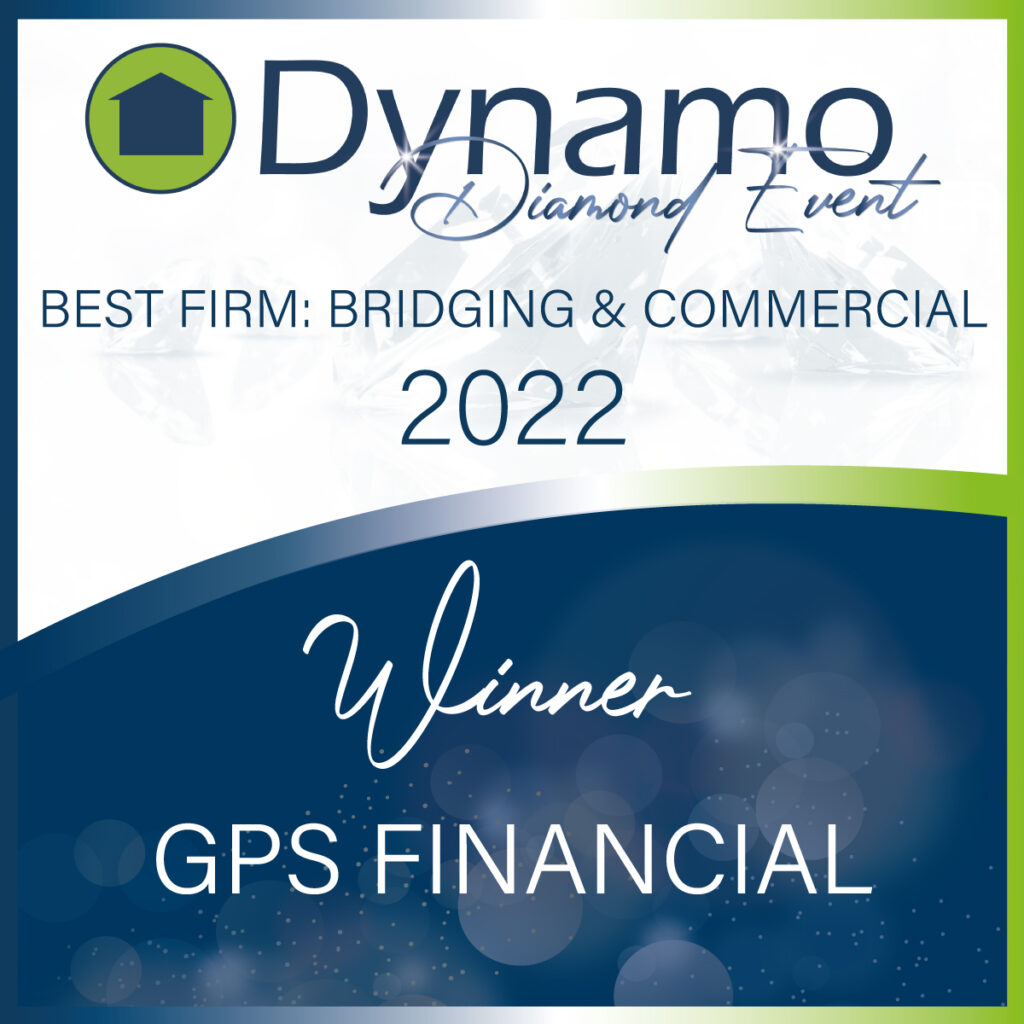What are Bridging Loans?
- Industry leading property finance specialists
- Expert brokers with decades of experience
- Access to the top lenders to get the best value
Get in touch for a free, no-obligation chat with an adviser about how we might be able to help.
Home » What are Bridging Loans?
What is a Bridging Loan?
A bridging loan ‘bridges’ a gap in your finances. It is a short-term loan typically used for property purchases, designed to help maintain property chains and ensure you can purchase the property you’re planning to buy.
This page provides you with all the information you need to decide whether or not a bridging loan is right for you.
If you still have questions, contact one of the team at GPS Financial who will be happy to assist.
What can I use a Bridging Loan for?
Bridging loans are short-term finance solutions, generally used for property purchases, developments, and refurbishments. They’re an ideal option when you need finance quickly or can’t get a mortgage. The typical loan length for bridging loans is between 6 to 18 months but can be shorter or longer.
You can use a bridging loan to:
- Buy a property at auction while you arrange a mortgage
- Fund heavy refurbishments or large-scale conversions on a property
- Buy land to build a property for personal or commercial purposes
- Kickstart residential or commercial property development projects that wouldn’t qualify for a mortgage
- Complete a property purchase
- Support a broken property chain so you don’t lose your new home
- Purchase an investment property or office building for your company
These are just a few examples of what bridging loans can be used for.
Types of Bridging Loans
Now you have an idea of what bridging finance can be used for, let’s take a look at the different types of bridging loans.
There are three main classifications of bridging loans:
1. First or second charge Bridging Loans
First or second charge bridging loans refer to the legal agreement placed on the deeds of your property.
First charge means the bridging loan is the principal loan and takes precedence over any other loan on the property, such as a second charge mortgage. A second charge bridging loan means the mortgage will be settled first and the bridging loan second.
Typically, a first charge loan is used to cover the primary purchase cost of a property and you’ll often see this in mortgages.
If you don’t have a mortgage, your bridging loan will be first charge.
2. Fixed or variable rate Bridging Loans
Fixed or variable-rate bridging loans work in a similar way as a mortgage. You can choose to set the rate at a constant throughout the loan period or vary it depending on Bank of England rates.
Keep in mind that bridging loan rates are typically higher than mortgages and other secured loans due to the short length and increased risk associated with them.
3. Open and closed Bridging Loans
Open and closed bridging loans refer to the repayment date and can be part of first or second charge and fixed or variable rate finance.
An open bridging loan is when there is no fixed repayment date. Instead, you’ll have a period the loan must be repaid by, usually up to 2 years.
Closed bridging loans have a fixed repayment date, like a personal loan. Closed bridging loans are often used when you have exchanged contracts and have a set completion rate.
Speak To An Expert
Giving you peace of mind while you sit back and let us do all the work for you while finding you the best deal for your financial situation.
How much can I borrow using a Bridging Loan?
Bridging loans are typically available for amounts ranging from £25,000 and £25 million. The amount you can borrow depends on the property’s loan-to-value (LTV) rate. Loans are usually available for a maximum of 75% – 85% LTV. Speak to a finance specialist to explore your options based on your affordability and circumstances.
How much does a Bridging Loan cost?
There are additional costs you’ll need to understand before you apply for a bridging loan.
There’s loan interest, of course. Bridging loan interest rates are usually higher than a standard mortgage due to the short-term nature of the loan. The exact rate will depend on your circumstances and how much you’re borrowing.
There are also other fees to consider. The exact fees will vary depending on the loan and your circumstances, but will typically include:
- Arrangement fee – Often 2% of the amount you’re borrowing but can be more or less
- Administration fee – A set fee to cover the costs of arranging the loan
- Legal fees – Fees for conveyancing and any legal paperwork
- Valuation fees – To cover the cost of property valuation for the loan
- Exit fee – Early repayment fee. Not charged on all bridging finance
Make sure you’re fully aware of what fees are included with a bridging loan and how much each will cost beforehand so you know exactly what you’re signing up to.
How to get a Bridging Loan
Bridging loans are specialist finance solutions and not many high street lenders offer them. Fortunately, experts such as GPS Financial can help you secure a great deal.
A financial broker or property finance specialist has access to a wide range of reputable lenders who offer competitive bridging loans.
The application is slightly different to a standard residential mortgage because the product itself is different.
It’s less about your credit score, salary, or deposit and more about the property value and your exit strategy.
You will mainly need to demonstrate you can repay the bridging loan. That can be proving your residential or commercial mortgage is being processed or demonstrating you have sufficient finances or forecasted income to repay the loan in full.
What are the alternatives to Bridging Loans?
There are a number of alternatives to bridging loans:
- Remortgaging – If you have a lot of equity in your current property, you could consider mortgage refinancing to raise capital.
- Let to buy mortgage – If you’re waiting to sell your current property while you buy another, a let to buy mortgage can help.
- Secured loan – Depending on how much you need to borrow, a secured loan may also work.
- Personal loan – Again, depending on how much you need, a personal (unsecured) loan could be a viable option.
Bridging Finance
Hopefully, you now have enough information to get a good idea of what bridging loans are, how they work, and whether they are a good idea for your situation or not.
If you want to know more or apply for a bridging loan, contact GPS Financial today to discuss your needs.
As a specialist broker with extensive experience in arranging bridging loans, our team can help secure suitable finance for personal or commercial use.
We’ll walk you through the entire process and even handle the paperwork for you!
Speak To An Expert
Giving you peace of mind while you sit back and let us do all the work for you while finding you the best deal for your financial situation.
Bridging Loan FAQs:
Can I get a Bridging Loan with bad credit?
Yes, you can get a bridging loan with bad credit. You’ll need to demonstrate you can afford the loan and have a viable exit strategy in place, but work with our expert brokers to improve your chances of a successful application.
Can I use a Bridging Loan for commercial properties?
Yes, you can use a bridging loan for commercial properties. The criteria for a commercial bridging loan are similar to those of a personal one. If you have an exit strategy and can demonstrate that you can afford the repayments, you should be able to access short-term bridging loans for almost any commercial use.
Are Bridging Loans expensive?
Bridging loans are more expensive than standard mortgages. There are more fees associated with them too. However, they are designed to be flexible and enable you to complete property purchases in all kinds of circumstances, especially when you can’t get a mortgage.
How do I find the best Bridging Loans?
You can find the best bridging loans by working with a specialist broker such as GPS Financial. We work with a pool of reliable lenders who provide competitive rates for all kinds of property purchases.
Do banks offer Bridging Loans?
Banks do not typically offer bridging loans. They are a form of specialist finance and most banks stick to high-profit, low-risk finance. That’s why you need to work with a specialist broker like GPS Financial.
Useful Links
- About Us
- Bridging Loans
- 100% LTV Bridging Loans
- Auction Bridging Finance
- Bridging Loan Locations
- Bridging Loan for Property Development
- Bridging Loan Property Purchase
- Bridging For Refurbishment
- Commercial Bridging Loans
- Regulated Bridging Loan
- Quick Bridging Loans
- Buy-to-Let Mortgages
- Expat Mortgage Broker
- HMO Mortgages
- Mortgages for Expats and Foreign Nationals
- Limited Company Buy-to-Let
- Self-Build Mortgages
- Short Term Lets
- Specialist Mortgages
- Contact Us
Why GPS Financial?






